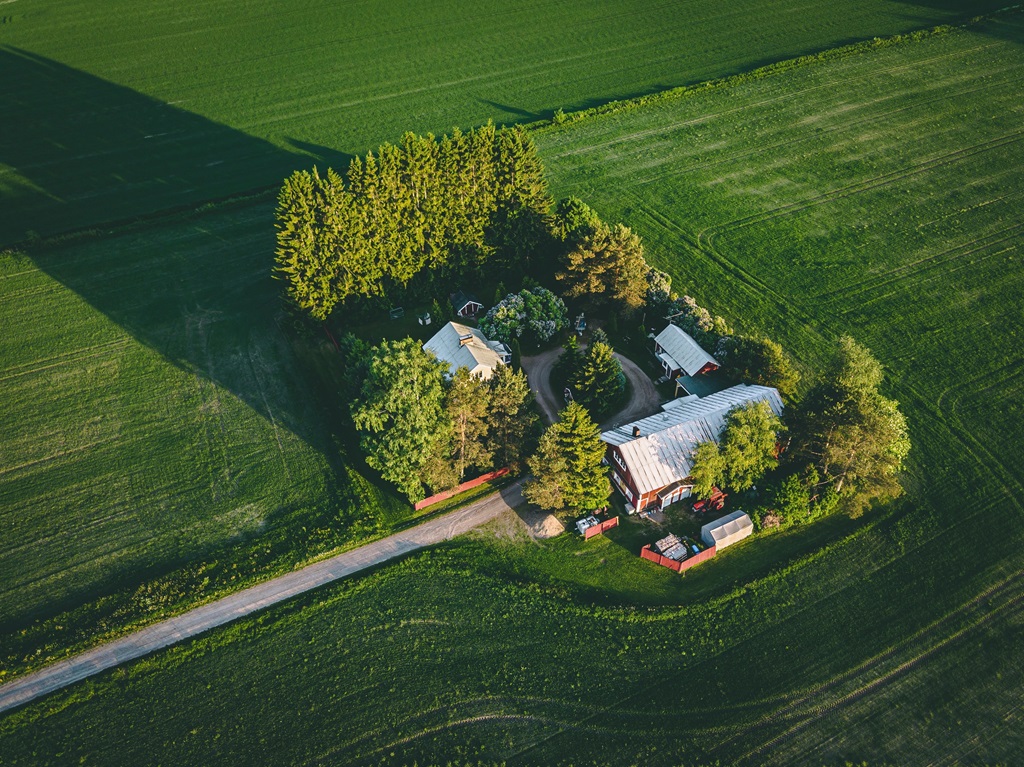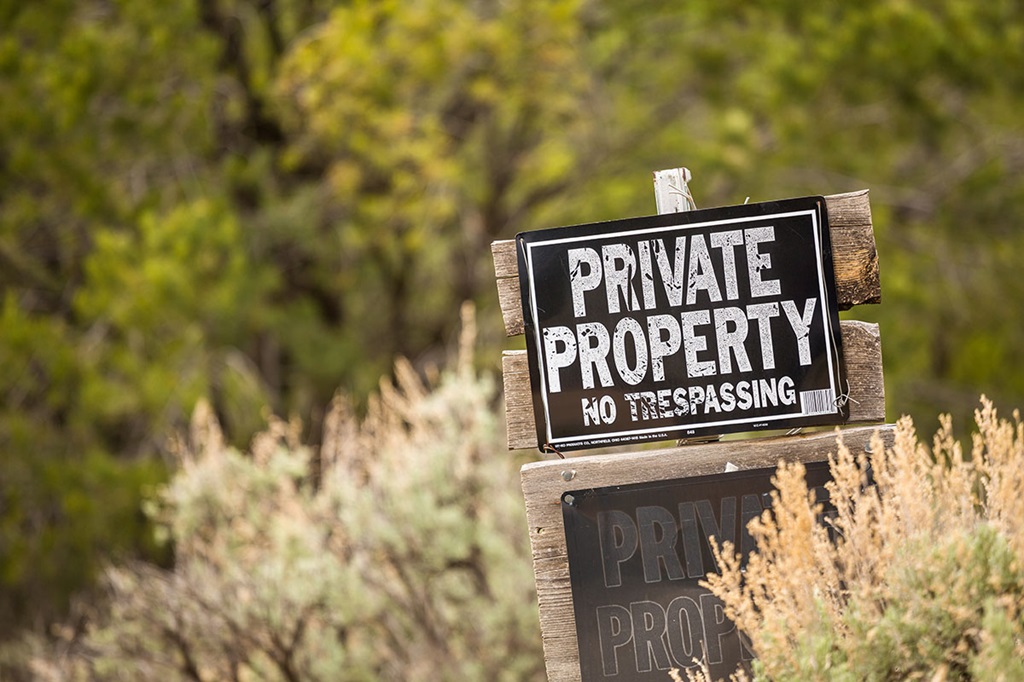Can You Deny Access to Landlocked Property?

When a piece of privately-owned property has no access or egress to a public road except by crossing lands of other private owners, it is considered “landlocked.” This lack of direct access poses legal questions about the landlocked owner’s rights and can lead to disputes between neighbors. By the way, I was wondering, can you deny access to landlocked property? Despite being a complicated matter, the general principle in most states is that landlocked owners have a legal right of access that cannot be completely denied without just cause.
What Makes a Property Legally Landlocked?
For a property to be considered legally landlocked, three key elements must exist:
- The property has no direct access to a public road, highway, or street. This forces access across other private property instead.
- Alternative access is not reasonably available. For example, if one could build a road through public lands to reach a main road, the property may not qualify as landlocked.
- The lack of access was not created through illegal subdivisions or improper permitting by the landlocked owner. Essentially, they can’t block their own access and then claim landlocked status.
If a property meets these criteria, the owner likely has legal access rights across a neighbor’s land through easements or rights-of-way. Denying all access in most cases faces legal obstacles.
The Rights of Landlocked Owners
Though situations vary state-by-state, landlocked owners generally have an implied or prescriptive easement of access across another’s private property due to necessity and pre-existing use. This allows ingress and egress to the public road system through the most reasonable and least intrusive route possible.
In plains states like North Dakota, these access easements stem from the legal concept that all land derives from the public domain. In the eastern U.S., access rights often come via “prescriptive easements,” where historic use patterns establish an access route predating current ownership.
The exact details depend on the laws of each state. But broadly, if a neighbor knowingly blocks previously available access, the landlocked owner can take legal action to open access again. Necessity creates these easement rights.
Allowable Reasons for Denying Access
Given landlocked owners’ legal rights, neighbors generally cannot deny all access without good cause. However, there are situations where denying or restricting access may be justifiable:
Safety and Security Concerns
If the owner of a landlocked property or their guests have repeatedly participated in activities that are illegal or threatening while using the access route, then the neighboring property owner may have valid reasons to restrict passage. These activities could include violent behavior, trespassing, theft, or liability issues arising from negligence. In such cases, the neighbor may have the right to prevent access to their property to ensure the safety and security of themselves and their property.
Non-Payment of Maintenance
In certain states, landowners who are surrounded by other private properties may be obligated to share the expenses of maintaining the private roads they use to access their land. Failure to make timely payments towards these maintenance costs may result in a denial of access as a possible course of action.
Availability of Alternative Access
If a landlocked property owner gains legal access to their property from another direction, a neighbor could possibly fight to remove the easement across their own land. This may require evidence that the alternative is reasonable to the owner.
Excessive Use or Overburdening
In cases where the use of an access easement significantly exceeds the original limits, it can lead to issues like overburdening the roadway, infringing on privacy, or hampering the services of the dominant parcel. Under such circumstances, the neighbor who is affected by it has the right to challenge the easement. However, completely denying access is not a feasible solution, and instead, limiting the traffic or imposing certain restrictions may be more plausible.
It’s worth noting that governments are authorized to close access to protect public lands. Similarly, utility companies may also block access if it’s necessary for repairing or maintaining public infrastructure. Apart from these limited exceptions, preventing any access is challenging due to high legal barriers. Even the spite fences that are intentionally constructed to block access may not hold up in court if they completely deny a landlocked owner’s rights.
Steps for Landlocked Owners Seeking Access
If a neighbor actively denies access, the landlocked owner does not have to quietly accept it in most cases. Here are proactive steps to restore rights of ingress/egress:
- Research exact access rights in the state: Consult real estate attorneys to understand legal positions.
- Contact neighbor to open access: Without hostility, seek to align on reasonable access using fact-based persuasion first.
- Offer formal easement if needed: Propose establishing express easement with access parameters, even paying reasonable compensation. Get any agreement properly permitted and recorded.
- Litigate if no agreement is reached: As a last resort, state courts can hear arguments and declare easement rights based on necessity or prior use. The judge can then outline allowed access.
If you are a landlocked owner, negotiations with neighboring property owners can be a challenging and frustrating process. However, it is crucial to approach these negotiations with a firm but calm attitude. It is important to keep in mind that provoking anger or hostility can actually weaken your legal standing, so it is best to maintain a cool head and rely on factual arguments to support your position. This means being prepared to present evidence to support your claims, such as property records or legal documents. By being well-informed and level-headed, landlocked parties can improve their chances of achieving a fair and successful outcome in negotiations.
In Conclusion
Resolving landlocked access disputes requires balancing property rights and negotiation. While landowners should retain reasonable rights to deny access, outright blocking a landlocked owner demands careful consideration. Their rights stem from necessity and historical access patterns difficult to defeat.
Seeking amicable solutions through dialogue best serves all parties. Compromises allowing limited or conditioned access often make sense over total denial. And if needed, well-targeted legal action can clarify ambiguity under the law. With open communication and respect, even complicated disputes around landlocked access can find resolution.
FAQs
Question 1: Can a landlocked owner demand the neighbor create a road giving access?
Answer: Generally no—the law mandates access rights, but rarely requires neighbors to build infrastructure for the landlocked owner unless previously agreed upon formally. The owner must utilize existing infrastructure even if inconvenient.
Question 2: If a landlocked property changes owners do access rights expire?
Answer: No—easement rights attach to the property, not individual owners. So if a new buyer cannot reach the purchased land, the land remains legally landlocked conferring access rights.
Question 3: Can landlocked owners access their property to maintain it?
Answer: Yes—landlocked owners retain basic rights to conduct maintenance and generally occupy the property. Denying them any access for these purposes faces legal jeopardy. However recreational use may not receive guaranteed protection.
Question 4: How wide is a typical landlocked access easement?
Answer: Widths vary based on local laws and prior use patterns. But often range from 10 to 30 feet wide to allow at least one vehicle. Wider easements generally burden the underlying land more, requiring greater justification.
Question 5: Can neighbors charge landlocked owners fees for road maintenance?
Answer: In some jurisdictions, yes—if the use of a road partly maintains access rights, the landlocked beneficiary may need to contribute financially. But fees should align with actual wear and tear imposed proportional to total use.


